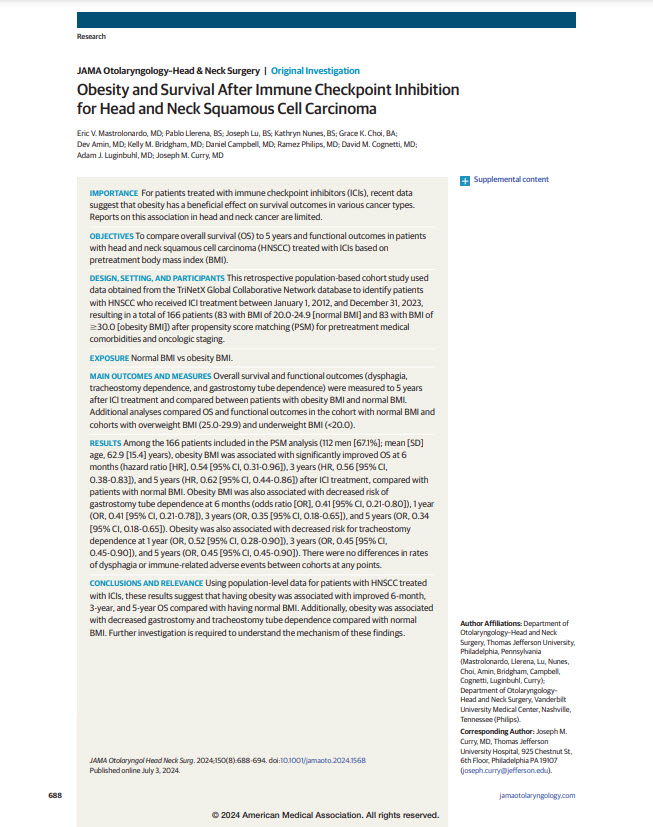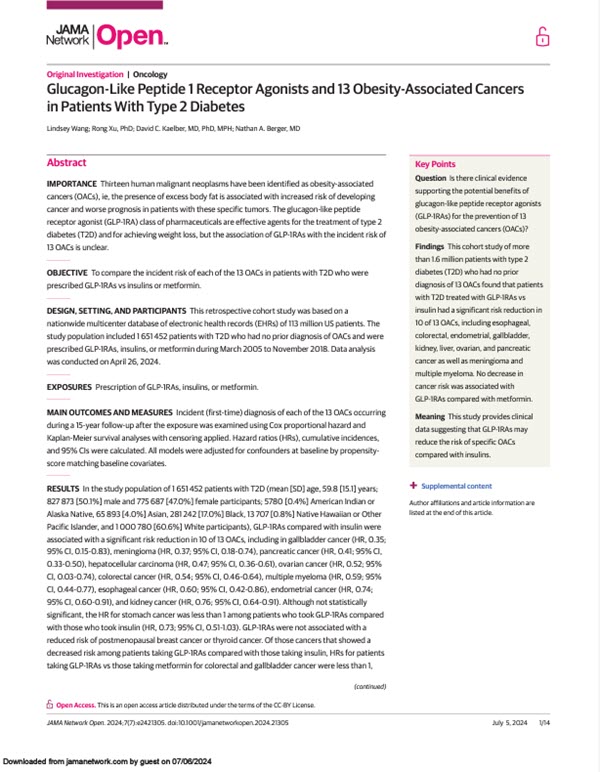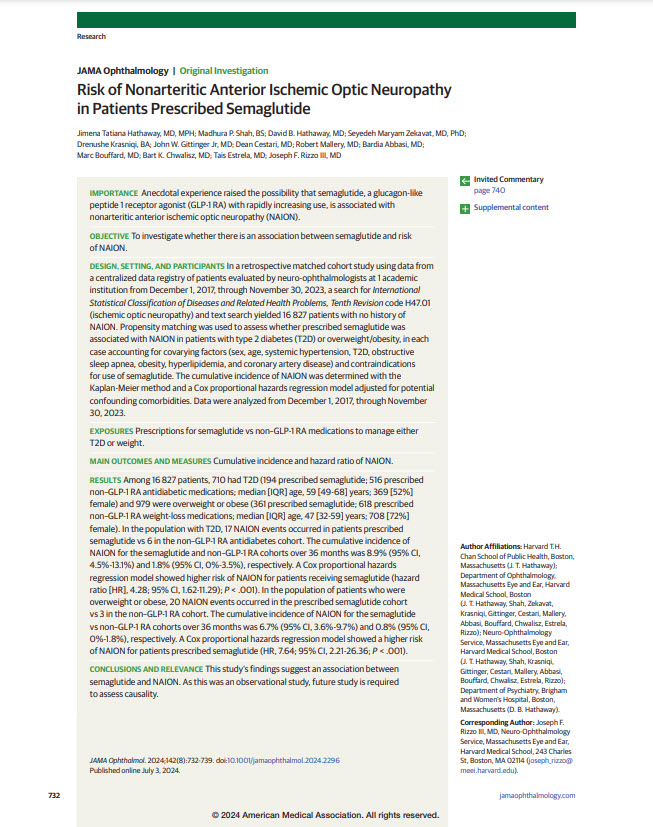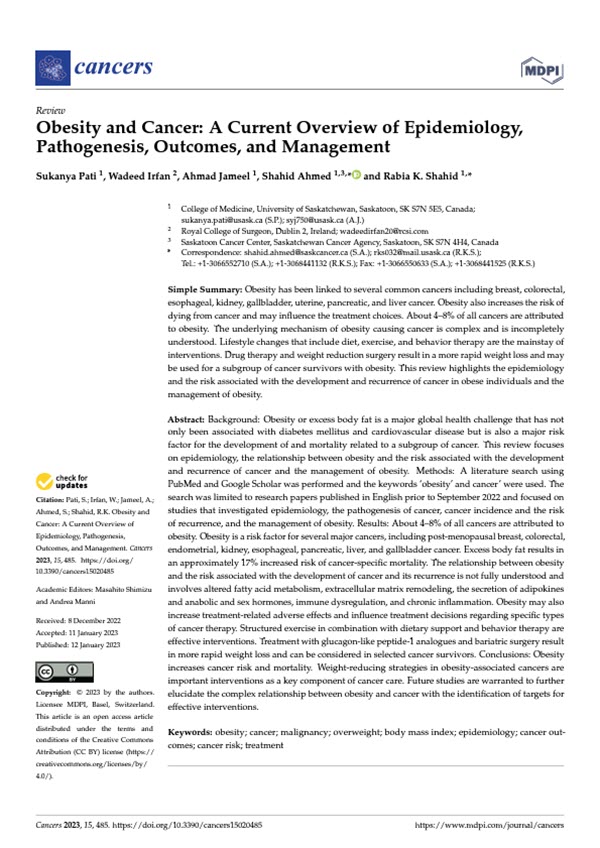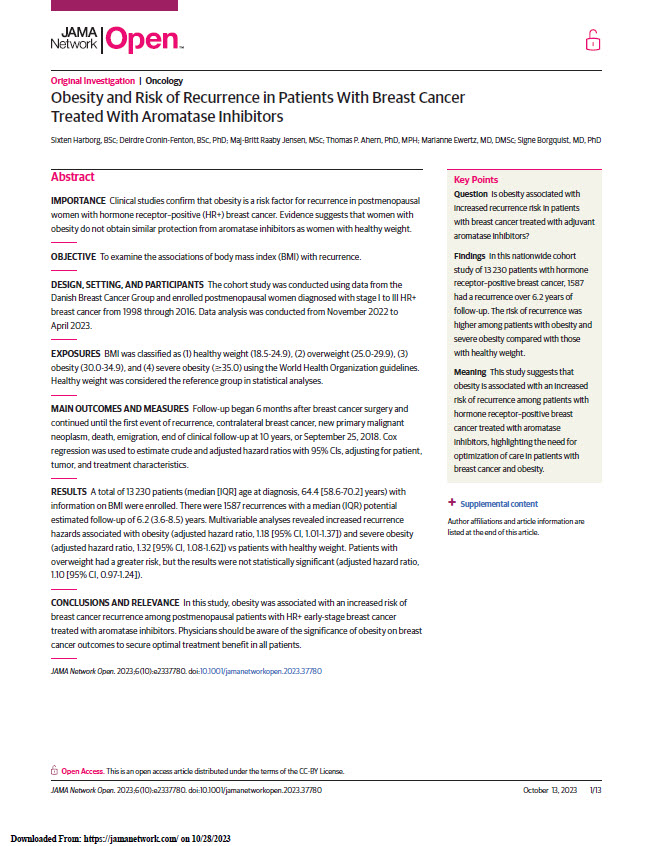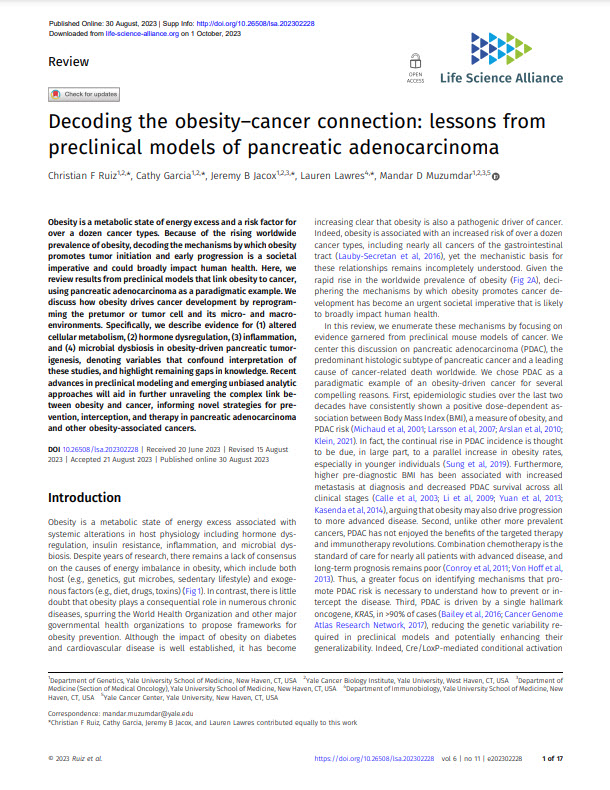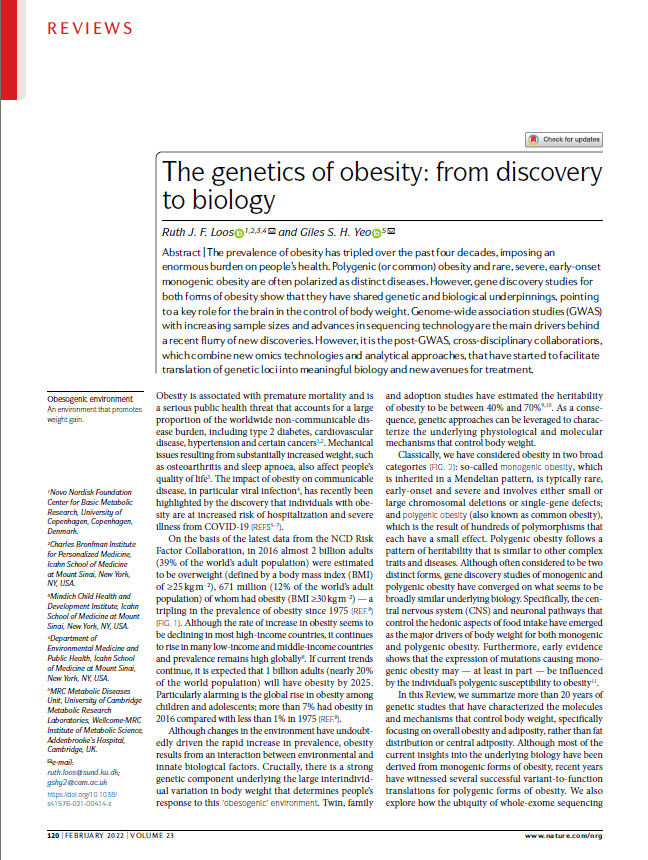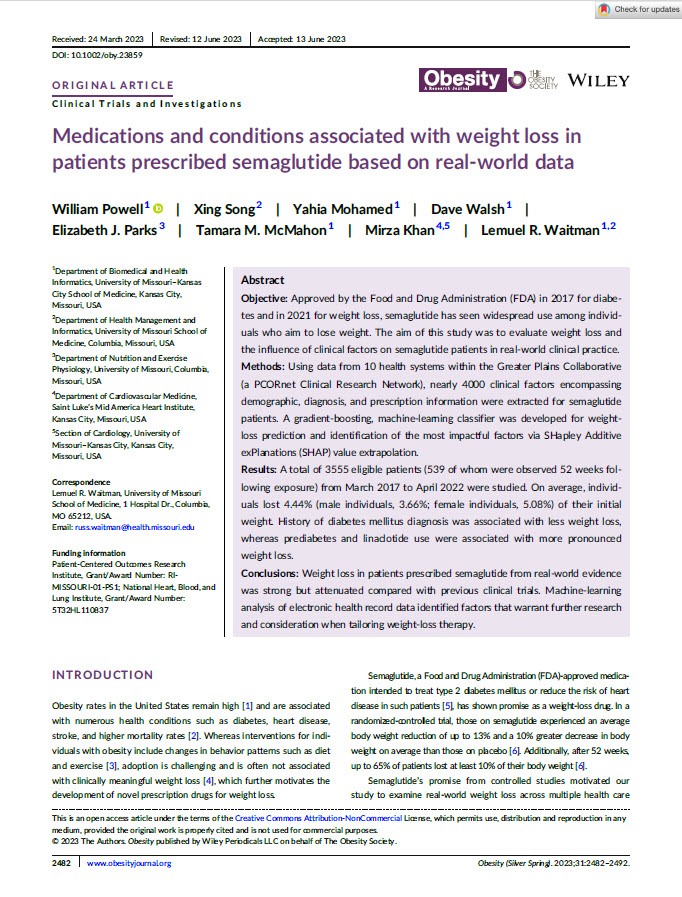Peer-Reviewed Journal Articles

Mastrolonardo EV, Llerena P, Lu J, Nunes K, Choi GK, Amin D, Bridgham KM, Campbell D, Philips R, Cognetti DM, Luginbuhl AJ, Curry JM. Obesity and Survival After Immune Checkpoint Inhibition for Head and Neck Squamous Cell Carcinoma. JAMA Otolaryngol Head Neck Surg. 2024 Aug 1;150(8):688-694. doi: 10.1001/jamaoto.2024.1568. PMID: 38958948; PMCID: PMC11223049.
Summary
This study investigated the relationship between body mass index (BMI) and survival outcomes in patients with head and neck squamous cell carcinoma (HNSCC) treated with immune checkpoint inhibitors (ICIs). The researchers found that patients with obesity (BMI ≥30.0) had significantly improved overall survival and were less likely to require gastrostomy or tracheostomy tubes compared to those with normal BMI (20.0-24.9). While the mechanism behind these findings remains unclear, the authors suggest that leptin, a hormone associated with obesity, might play a role in enhancing the effectiveness of ICI therapy. However, the study acknowledges several limitations, including the use of a retrospective design, relying on electronic health records, and the inability to stratify by histological types of HNSCC. Further investigation is needed to confirm and clarify the findings.
AI GEnerated Summary Podcast (11:01)
Summary
A study in JAMA Network Open investigated the potential cancer-preventative effects of glucagon-like peptide-1 receptor agonists (GLP-1RAs) in patients with type 2 diabetes. The research team used a large database of electronic health records to compare the incidence of 13 obesity-associated cancers (OACs) in patients prescribed GLP-1RAs, insulins, or metformin. They found that GLP-1RAs were associated with a significantly lower risk of 10 OACs compared to insulin, but not metformin, with some exceptions, including an increased risk of kidney cancer when compared to metformin. While the study offers preliminary evidence of GLP-1RAs’ potential benefit for cancer prevention, further research is needed to confirm these findings and explore the underlying mechanisms involved.
AI Generated Summary Podcast (6:56)
Summary
The article, “Risk of Nonarteritic Anterior Ischemic Optic Neuropathy in Patients Prescribed Semaglutide,” published in JAMA Ophthalmology, investigates a potential link between semaglutide, a medication used for diabetes and weight loss, and NAION, a condition that can lead to blindness. The study, conducted at Massachusetts Eye and Ear, used a retrospective cohort design and propensity matching to analyze data from a centralized data registry. Their findings suggest that semaglutide may be associated with an increased risk of NAION, but the study acknowledges that further research is needed to confirm causality.
AI Generated Summary Podcast (7:28)
Summary
This article from the journal Cancers provides a comprehensive overview of the relationship between obesity and cancer. The authors discuss the epidemiology of obesity and cancer, the biological mechanisms by which obesity increases cancer risk, the impact of obesity on cancer outcomes, and the various methods for managing obesity in cancer survivors. The article concludes with a discussion of ongoing clinical trials investigating the effects of weight reduction, exercise, and diet on cancer prevention and treatment.
AI Generated Summary Podcast (22:17)
Summary
This study, published in the JAMA Network Open, examines the relationship between body mass index (BMI) and the risk of breast cancer recurrence in postmenopausal women diagnosed with hormone receptor-positive (HR+) early-stage breast cancer who received aromatase inhibitors. The researchers analyzed data from a large nationwide cohort in Denmark, finding that obesity was associated with an increased risk of recurrence compared to women with a healthy weight. This study adds to the growing body of evidence suggesting that women with obesity may not benefit as much from aromatase inhibitor treatment as those with healthy weight. The authors emphasize the need for further research to investigate whether estrogen suppression is sufficient in obese patients treated with aromatase inhibitors and to consider alternative treatment strategies.
AI Generated Summary Podcast (11:20)
Summary
This research review investigates the complex relationship between obesity and pancreatic cancer, focusing on the mechanisms by which obesity promotes tumor development. The authors discuss evidence from preclinical mouse models, highlighting the role of altered cellular metabolism, hormone dysregulation, inflammation, and microbial dysbiosis in pancreatic tumorigenesis. The review also examines the potential for targeting these mechanisms to prevent or intercept the disease. The authors emphasize the need for further research, particularly regarding the early stages of tumor development and the specific contributions of different dietary factors and physical activity.
AI Generated Summary Podcast (11:20)
Summary
This research review, published in Nature Reviews Genetics, summarizes two decades of genetic research on obesity. The authors highlight the convergence of research on monogenic and polygenic obesity, revealing the central role of the brain in regulating body weight. The review examines the leptin-melanocortin pathway, the BDNF-TrkB signaling pathway, and other neuronal circuits, showcasing how these pathways contribute to both rare, severe obesity and common, more prevalent forms of obesity. The authors discuss the potential of these discoveries for personalized medicine, including the use of genetic testing for diagnosis, the development of genotype-informed treatments, and the use of polygenic risk scores for prediction.
AI Generated Summary Podcast (11:58)
Summary
This research article examines the effectiveness of semaglutide for weight loss in real-world clinical settings. The authors analyzed electronic health record data from 10 health systems to study the impact of semaglutide on weight loss in a diverse population. They found that while semaglutide did lead to weight loss, the results were less pronounced than those observed in clinical trials. The study also utilized machine learning to identify clinical factors associated with greater or lesser weight loss, revealing that factors such as prediabetes and linaclotide use were associated with increased weight loss, while diabetes mellitus, dulaglutide use, and metformin use were associated with diminished weight loss. The authors conclude that while semaglutide shows promise for weight management, further research is needed to understand the influence of various patient characteristics and comorbidities on treatment outcomes.

